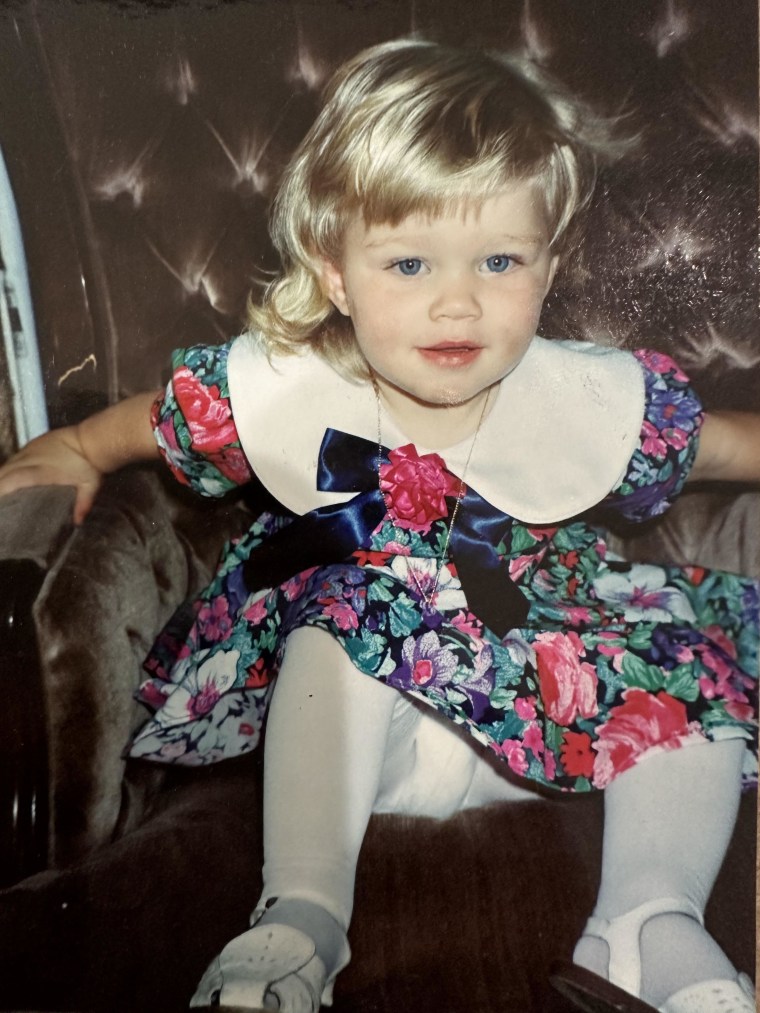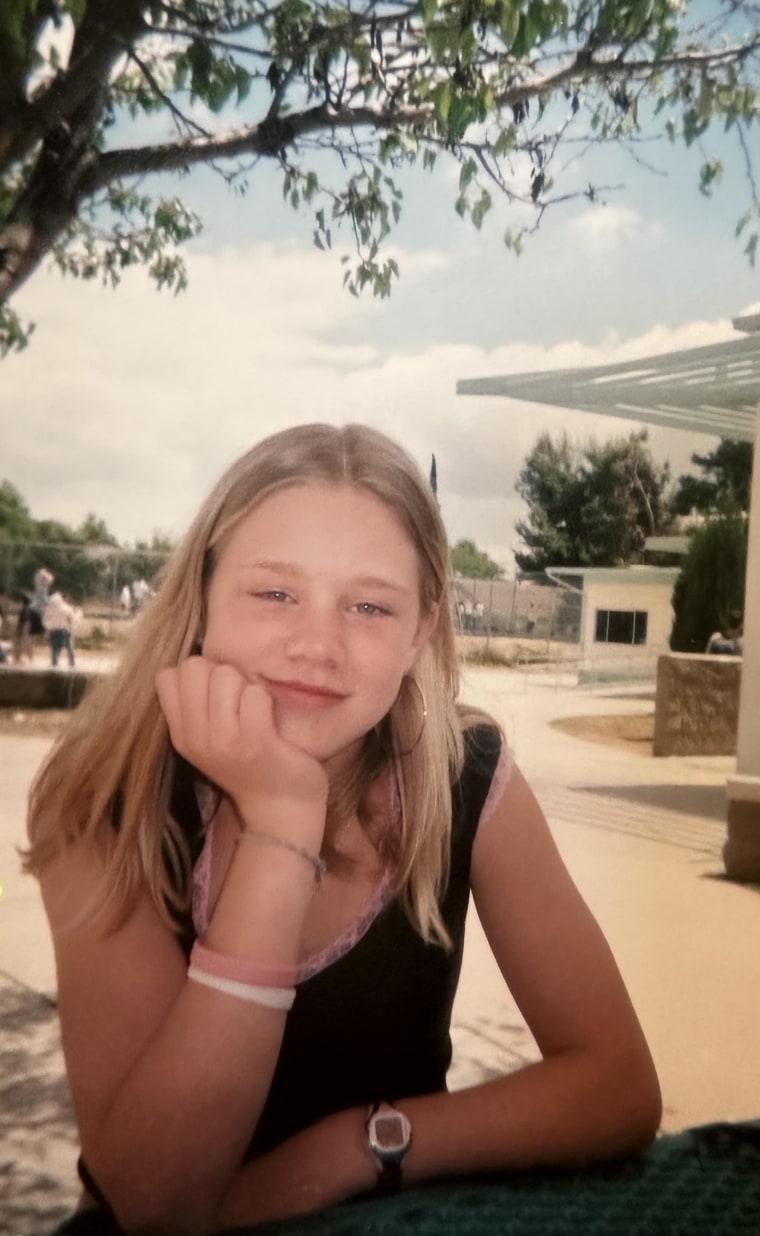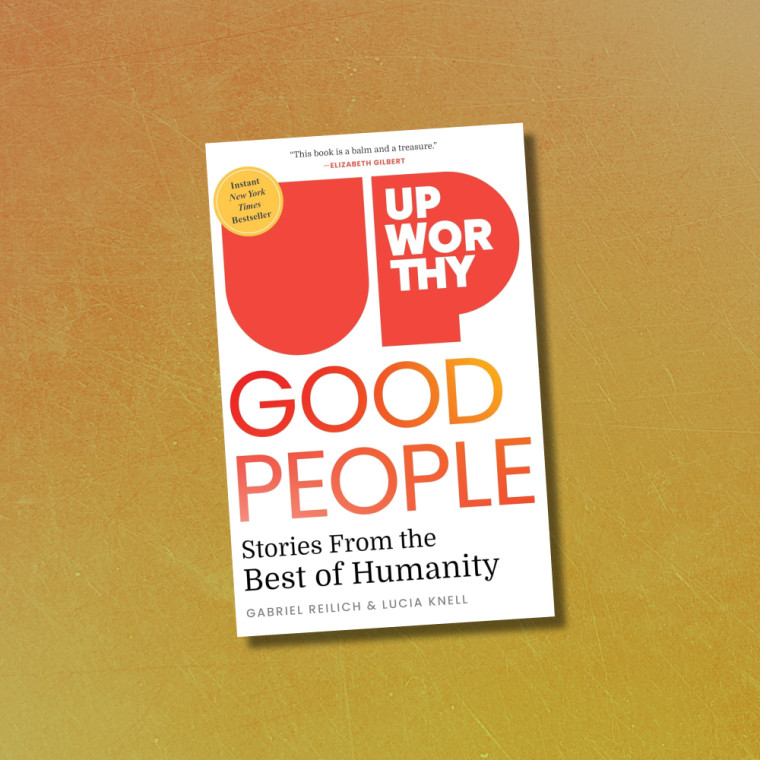The following essay was excerpted from Upworthy’s “GOOD PEOPLE,” by Gabriel Reilich and Lucia Knell, available now wherever books are sold.
I received my death sentence at 2 years old, with 11 years to live if I was lucky. I took 36 pills every day, crushed into food and drinks, hoping it would give me more time. A guinea pig for new treatments, I spent more time in the hospital than I did on the playground. I was too little to understand that my childhood deviated from the norm. If you’d asked me at that age, “Hey Lexi, what’s it like to be sick?” I wouldn’t have had an answer — sickness was all I’d ever known. It’s like that joke about the fish. You ask the fish, “How’s the water today?” The fish replies, “What’s water?”
At 4 ½, I lost my mother to the same virus I had — the same one she unknowingly gave me. Her death was a drop in the water in which I swam — a drop so charged and potent it changed the color of my world.

Shortly after this, I started kindergarten. When the harsh reality of my illness hit full force, she wasn’t there to help me swim.
At school, during nap time, I wasn’t given pillows or blankets, or allowed to sleep near the other kids. Staff laughed at me while I put my legs through my jacket sleeves to stay warm. In first grade, if I spit or bled, I was sent home. I had my own bathroom, and was relegated to the far corner of the classroom. You see, I wasn’t just ill with a typical cold or flu; I was ill with an invisible virus everybody feared.
My first lesson in school was this: You, Lexi Gibson, are not a kid to be loved. You are something unknown, something to be feared.
Middle school was a nightmare; bullying was on the daily agenda. Most of the time, no one sat with me during meals; I’d say I felt invisible, but it was actually quite the opposite. I was the laughingstock of the school, routinely shoved back and forth between people, all of whom jeered while calling me names. Paper wads and pennies were thrown at me during class. The day I died inside had to be the afternoon I showed up to science class to find huge scrawled letters on the door:
Lexi has AIDS.
Usually when a person has a terminal illness, they’re met with empathy and love. But my HIV diagnosis provoked ridicule and loathing.

In seventh grade, though, I got lucky: Mrs. Marks was my science teacher. She was the only person in the whole school to treat me like a normal human being. She was the oxygen to my water, and didn’t allow anyone to bully me under her watch. Funny and bright, she wasn’t charismatic in a showy way, like a teacher in a movie who stands on a desk. She was grounded and empathic. She was real.
So, one day, at lunch, instead of signing up for another round of human target practice, I walked into her classroom and asked, “Could I eat with you?” She said, “Sure” — like a person who’d actually enjoy my company. After that day, her classroom became my safe haven. I don’t think we talked about it, the bullying. But I knew she knew. She was one of those people, capable of unspoken understanding.
Nothing momentous happened in that classroom; that’s what made it special. Mrs. Marks and I would sit and talk, watch movies or listen to music. Sometimes I’d draw or do homework. Sometimes we’d sit and be quiet, and it wasn’t awkward; it was revelatory.
You see, in the water I swam in, chaos was the norm. At home, at school — people yelling, slamming doors, beating me, screaming insults. Even louder than that was the noise inside my head: the internalized mean girl on a loop. The one who told me without hesitation that I was worthless, a freak, unwanted and impossible to love. I believed what everyone told me. But when I ate lunch with Mrs. Marks, for 50 minutes, the noise went away. For the first time since my mother died, I experienced something deeper than quiet. I experienced peace.

Abandoned by my father at 14, I found myself on my deathbed at 15, my organs shutting down. My adoptive mom (another story) fought hard to get me into a medical study with new medication that would “hopefully” save my life. I wasn’t hopeful. I’d been in studies my whole life. Hope required energy I no longer had.
But I was wrong. This time, the drugs worked. My viral count dwindled until it virtually disappeared. Undetectable, they called it. I won’t say it was a miracle and risk undermining the collective effort of thousands of scientists who dedicate their lives to making things like this possible. But I will say it felt like one.
I’m not going to lie. My problems didn’t just go away; there’s no drug you can take for that. A lifetime of being treated like an untouchable takes its toll. And it takes a truckload of therapy to convince yourself that you are not, in fact, a virus; you are a human worthy of love. Deserving of happiness, health, hope — all the h words that aren’t “HIV.”
At 31, I live in Las Vegas and own a beautiful ranch home on a half acre. I am surrounded by people who love and accept me — people like Mrs. Marks, who provided proof of kindness when I needed it most. The serenity I experienced in her classroom, once so rare, is now boundless. Drop by drop, I changed the water I swim in — from gloomy and turbulent to calm and clear. Love and belief are all I needed. After all, I know how precious life is; not a day goes by without gratitude to see another sunrise.